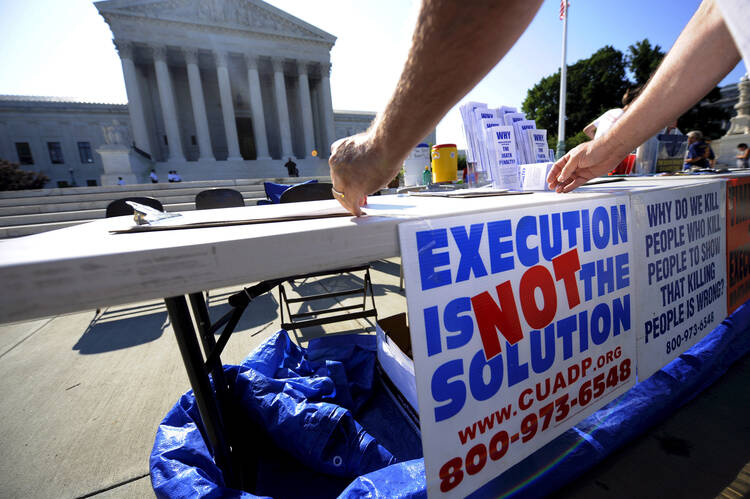Support for the death penalty has slipped to just below 50 percent, its lowest level in 40 years, according to a recent poll by the Pew Research Center. Further evidence of public attitudes can be expected on Election Day. Archbishop José Gomez of Los Angeles is urging California voters to abolish capital punishment, writing that it deprives the condemned of “the chance to change his heart and make amends.” In Nebraska, voters will decide whether to reinstate the death penalty after it was repealed earlier this year by the legislature; in Oklahoma the question is whether to enshrine its capital punishment law in the state constitution.
Eight states have repealed the death penalty since 2000, but none by popular vote. The last time the death penalty lost at the ballot box was in Arizona in 1916, and it was reinstated two years later. This may be one reason why few national political leaders have joined the movement for repeal. Donald J. Trump notoriously took out newspaper ads in 1989 saying “Bring Back the Death Penalty” to New York after the arrest of five teenagers for the rape of a jogger in Central Park. (They were later exonerated.) Meanwhile, Hillary Clinton continues to support the death penalty, and her running mate, Tim Kaine, answered a question about “balancing” his Catholic faith with public policy by saying he had allowed executions to continue when he was governor of Virginia. Sadly, Mr. Kaine gave no indication that he would work to abolish the death penalty at any level of government.
It is heartening that younger voters in particular are increasingly skeptical that the state has the right to execute human beings. But abolishing the death penalty at the federal level and in the 31 states where it remains is a daunting process that will require continued passion and commitment. The courts and the leaders of the two major political parties cannot be relied upon to advance this cause.








